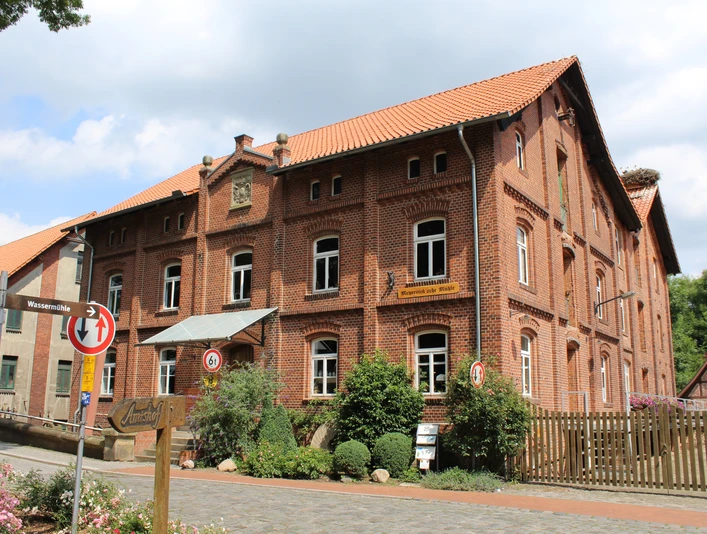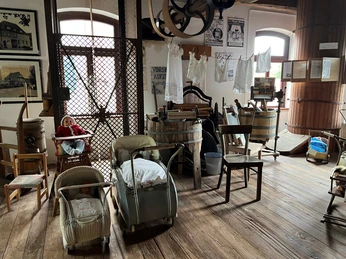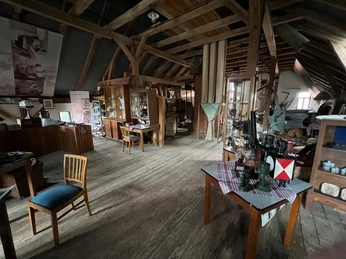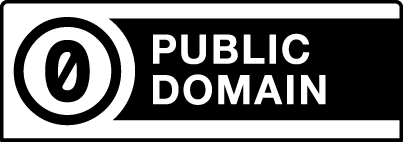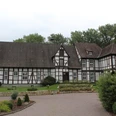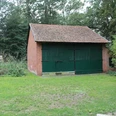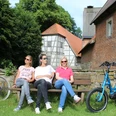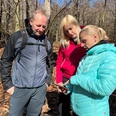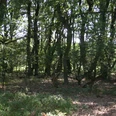Meyersiek'sche Mühle, situated on the Große Aue, was first mentioned in 1245 as a bailiff's mill. Until 1853, the manorial mill was subject to compulsory milling, after which it became private property. Sources from the 13th century speak of an oil and grain grinding mill. In 1679, Duke Wilhelm zu Lüneburg had the facility renovated, as the coat of arms on the mill house built around 1900 reminds us. In 1853, the official mill came into the possession of the miller Moldenhauer for 14,300 thalers. From 1865, the mill belonged to the Meyersiek family and today it is owned by the Steyerberg district.
The old water wheels had to make way for a turbine in 1897. Fritz Meyersiek's grandfather and seven Steyerberg citizens signed a contract in which they undertook to supply electricity. In the same year, the street lamps in Steyerberg came on. To this day, two turbines supply electricity, the surplus of which flows into the grid. Milling operations came to a standstill at the beginning of the 1970s due to modernized agriculture. The sawmill is now powered by electricity. The mill and the Amtshof are as beautiful as they are an integral part of Steyerberg's history.
Since 2002, the Steyerberg Heritage Society has spent countless hours restoring the listed Old Mill building. The beautiful interior is opened to the public on various occasions (Open Monument Day) or used for cultural events. The newly arranged exhibition, which has been made accessible again, includes the mill's almost completely preserved grain cleaning equipment. The historical account books and the history of Steyerberg's craftsmanship are presented in detail with pieces from the saddlery, shoemaker's workshop and beekeeping.
Members of the Steyerberg local history association are happy to offer guided tours of the mill for groups on request. Coffee and homemade cakes are served on opening days.
Mill weddings" are offered in the Meyersiek'sche Mühle. The wedding room can accommodate up to 80 people. A champagne reception after the ceremony is also possible. (Registry office Flecken Steyernerg, Tel. 05764-960610 or Tel. 05764-960617).
The old water wheels had to make way for a turbine in 1897. Fritz Meyersiek's grandfather and seven Steyerberg citizens signed a contract in which they undertook to supply electricity. In the same year, the street lamps in Steyerberg came on. To this day, two turbines supply electricity, the surplus of which flows into the grid. Milling operations came to a standstill at the beginning of the 1970s due to modernized agriculture. The sawmill is now powered by electricity. The mill and the Amtshof are as beautiful as they are an integral part of Steyerberg's history.
Since 2002, the Steyerberg Heritage Society has spent countless hours restoring the listed Old Mill building. The beautiful interior is opened to the public on various occasions (Open Monument Day) or used for cultural events. The newly arranged exhibition, which has been made accessible again, includes the mill's almost completely preserved grain cleaning equipment. The historical account books and the history of Steyerberg's craftsmanship are presented in detail with pieces from the saddlery, shoemaker's workshop and beekeeping.
Members of the Steyerberg local history association are happy to offer guided tours of the mill for groups on request. Coffee and homemade cakes are served on opening days.
Mill weddings" are offered in the Meyersiek'sche Mühle. The wedding room can accommodate up to 80 people. A champagne reception after the ceremony is also possible. (Registry office Flecken Steyernerg, Tel. 05764-960610 or Tel. 05764-960617).
Good to know
Openings
Only exterior viewing possible.
Payment methods
free of charge
Author
Mittelweser-Touristik GmbH
Lange Straße 18
31582 Nienburg/Weser
Organization
Mittelweser-Touristik GmbH
License (master data)
Mittelweser-Touristik GmbH
Nearby
